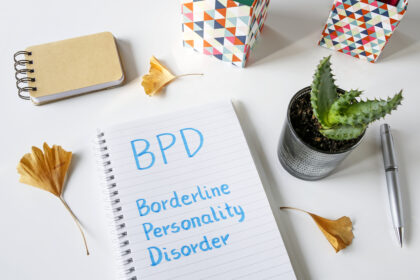How Are Our Loved Ones Affected by Borderline Personality Disorder (BPD)?
A lot of research and studies have gone into how Borderline Personality Disorder (BPD) affects the brain, behavior, and the overall life of an individual. Unfortunately, not as much research has gone into how BPD affects an afflicted individual’s relationships with other people. This may include family members, friendships, relationships with bosses or coworkers, and even romantic relationships.
Some people are under the preconception that people with BPD cannot have relationships with other people, however, this assumption is limitedly supported, and if anything, more research has proven that BPD can be managed and that many individuals suffering from BPD can achieve remission. Given this information, it becomes a matter of how an individual can get their BPD under control and enter remission, so that they can begin their healing, and help those around them who have suffered heal as well.
BPD is Characterized by a Lack of Meaningful Relationships
While it is true that BPD can be managed, and that some individuals can achieve remission, it is also true that the lives of other people close to a person suffering from BPD suffer as well. These individuals may be siblings, close friends, teachers, relatives, parents, supervisors, partners and spouses, and even acquaintances. In fact, BPD is notoriously marked for being characterized as a condition which prevents the individual from having healthy, meaningful relationships. It is harder for BPD individuals to form meaningful relationships because they are constantly fearful of those around them abandoning them (Palihawadana et al., 2019).
What Do People Who are Close to a BPD Individual Go Through?
Those close to someone diagnosed with BPD typically live tumultuous lives as well. They are scared to say the wrong thing. Oftentimes, they describe being scared to say anything at all. What they do say is spoken quietly and while walking on ice. They are worried they will come home to varying personalities. They are worried of the extreme bouts of anger a BPD person will exhibit. They are worried about the jealousy a BPD person will show even when it is not warranted. Their life is worrisome and can often be described as “walking on eggshells.” There is even a BPD book for those loved ones who are close to BPD people entitled “Stop Walking on Eggshells” (Mason & Kreger, 2010).
Some people describe this life as abusive, and it very well may be. This is important to accept for both the BPD individual and the people around them, as it is essential in the healing process for everyone.
How BPD Affects Friendships
A lot of BPD people explain that their friendships are often short lived. This is even true for the closest of bonds. BPD people may find that they have rotated through friends quite quickly, even those who they would have considered “life-long material.” This is because the average person (unafflicted by BPD) does not understand the trials and tribulations of the conditions and they will often grow sick of the symptoms. This is especially true of the episodes a BPD person might endure (for more information on this, we suggest reading “What is BPD?”). Fortunately, with the right guidance and treatment, it is possible for a BPD person to control their emotions, subdue their inappropriate behavior, and forge meaningful friendships which actually can last a lifetime.
Can Someone with BPD Have a Relationship?
The troubles of BPD may lead one to believe they cannot have a meaningful relationship. This is most certainly false. With the right management of behavior and the appropriate support system, amongst other variables, a BPD individual can form the most meaningful of relationships. Friendships do not have to be corroded. Family does not have to be alienated. Teachers and supervisors can find respect for a BPD individual.
It is also worth noting that a BPD individual can form strong romantic bonds with their partner. One of the upsides of having BPD, if there are any, is that the individual is typically more empathetic than others. This means they have a deeper connection to their feelings and are able to understand other people with more sensitivity. Successful, vibrant, close romantic relationships are most certainly possible for the managed BPD individual. In fact, it could even be suggested that a managed BPD person is one of the best possible companions!
There is Always Hope
Remember, no matter how bad things are, there is always hope. The first step is understanding that this is a condition which has (up until now) been largely out of your control. This condition is merciless, it is ruthless, and it affects people from all types of backgrounds. No matter the past, there is still hope for the future and there are ways to conquer the outbursts, handle the symptoms, and regain control of one’s life.
It may not be an easy path. It does require some studying, some research, some effort, but anyone with BPD will likely agree that these efforts are worth it in terms of controlling the symptoms and fixing the spiraling thought process that is typically associated with Borderline Personality Disorder.
What can Help?
Many therapists and mental health professionals will turn down a BPD person for treatment due to their extremity in behavior and difficulty in adhering to treatment protocol (Sulzer, 2015). That all said, still, many resources exist which can help a BPD individual overcome their obstacles and shortcomings. Some therapists actually specialize in BPD treatment. Some mental health professionals, such as psychologists or psychiatrists, have a lot of experience in helping manage BPD symptoms. Furthermore, there is most certainly a plethora of in-patient and medicated treatment programs which have proven to help those with BPD (Choi-Kain et al., 2017).
In addition to therapy and other avenues of help, Sensitive Stability has composed a curriculum, designed by a PhD candidate and BPD survivor. This program is specifically crafted to help BPD individuals (and those who are close to them) navigate the difficult waters of suffering with this condition.
Final Words on BPD and Our Loved Ones
Regardless of treatment methodology, BPD most certainly bears impact on the loved ones closest to the afflicted individual. They are subject to the behavior, the mood swings, the episodes, the jealousy, the anger, and many other difficulties. For some of these individuals, the answer is simply walking away from the BPD person, making the reality of abandonment true (a symptom often suffered by those with BPD). For others, the answer is not that simple: they are married to the individual, related to them, or otherwise forced to face the demons head on. One of the greatest solutions to this problem is getting the BPD person on board with learning about their condition, and more importantly: how to treat it or get the symptoms under control. The bottom line though is that there is hope for any BPD case, and that BPD can be properly managed.
If you or someone you know thinks they might have BPD we encourage you to check out our other article “Is BPD Me?” and take the BPD test today!
Important Disclaimer: If you or someone you know is having a medical emergency, experiencing a BPD episode and needs help, or exhibiting parasuicidal or suicidal behavior, please contact emergency services immediately. Additionally, there are many free suicide hotlines including the National Suicide Prevention Lifeline at 1-800-273-8255.
References
Choi-Kain, L., Finch, E., Masland, S., Jenkins, J., and Unruh, B., (2017). What Works in the Treatment of Borderline Personality Disorder, Current behavioral neuroscience reports, 4(1), 21–30. DOI: https://doi.org/10.1007/s40473-017-0103-z
Mason, P., and Kreger, R., (2010). Stop Walking on Eggshells: Taking Your Life Back When Someone You Care About Has Borderline Personality Disorder. Second editition. New Harbinger Publications. ISBN: 1572246901.
Palihawadana, V., Broadbear, J., and Rao, S., (2019). Reviewing the clinical significance of ‘fear of abandonment’ in borderline personality disorder, Australasian Psychiatry, 27(1), 60–63. DOI: https://doi.org/10.1177/1039856218810154
Sulzer S., (2015). Does “difficult patient” status contribute to de facto demedicalization?, The case of borderline personality disorder, Social science & medicine, 142, 82–89. DOI: https://doi.org/10.1016/j.socscimed.2015.08.008




